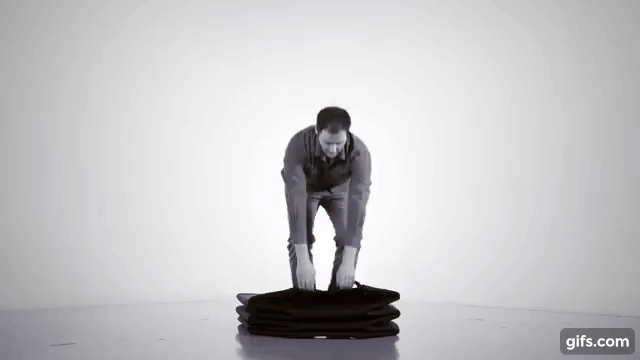Austria’s ‘asshole’ protocols
Hot on heels of Kurz affair, new cache of texts catalogues chronic cronyism.

Some political scandals never die. They just get more embarrassing — especially, it would seem, when Austria is involved.
Just weeks after former Chancellor Sebastian Kurz was forced off the political stage following the publication of explosive text messages that triggered probes into official corruption, another cache of revealing chats has thrown the country’s conservative-led government back into crisis mode.
While evidence of criminal wrongdoing has yet to emerge in the chats, the political fallout is considerable. The new disclosures have already led to the sidelining of one of the country’s most senior judges, whose unorthodox career path is detailed in the exchanges.
The communications pull back the veil on how conservative party gatekeepers have filled posts throughout the civil service, from judgeships to police academy staff, not according to candidates’ qualifications, but their political loyalties. Unfortunately for Chancellor Karl Nehammer, who stepped down as interior minister to take charge of the government last month, both his wife and his former ministry are central to the story.
First published by ZackZack, a scrappy investigative online magazine, the exchanges reveal the extent of the cronyism in Austria, shining a light on the inner workings of the conservative network that has dominated the country’s politics for decades.
Beyond exposing the favors politicians traded for plum positions, the chats also detail what happened when the conservative nomenklatura didn’t get its way.
“Chin up! Remember these assholes and we’ll deal with them one by one,” a senior civil servant in the interior ministry, Michael Kloibmüller, wrote in 2016 to a colleague about a dispute with police union representatives. Kloibmüller worked in the ministry for nearly 20 years, in senior roles for eight different conservative ministers, making him one of the most powerful people in the entire government.
“I’m going to fight for that with everything I’ve got,” responded the official, who was pressured by union reps into relinquishing his membership of the conservative Austrian People’s Party before taking a senior law enforcement role.
Kloibmüller declined to comment in detail, saying only that the data on his phone had been stolen and that he was the victim of a crime. He said he couldn’t confirm the authenticity of the chats that have been published.
Just how ZackZack, which was founded by Peter Pilz, a prominent former Green politician and anti-corruption campaigner, secured the information isn’t clear.
What is known, however, is that the exchanges were taken from Kloibmüller’s mobile phone, which fell into a branch of the Danube during a canoe trip the interior ministry organized in 2017.
During the trip, intended as a team-building exercise, Kloibmüller and other senior officials ended up in the water, allegedly because Katharina Nehammer, the wife of the current chancellor and then-adviser to the interior minister, rocked the boat they were in. She couldn’t be reached for comment.
The waterlogged phones were collected and handed to government security officials. The episode was largely forgotten until ZackZack began to publish details of what was on Kloibmüller’s phone in January.
Case for the prosecution
The most shocking revelation so far involves Eva Marek, the vice president of Austria’s highest criminal and civil court.
In 2014, Austria’s then-justice minister needed to fill the politically sensitive post of Vienna chief prosecutor, an office that includes oversight of all political corruption investigations. The minister, Wolfgang Brandstetter, was worried that the two women who had applied couldn’t be influenced by either him or the People’s Party, according to the chats. So he decided to ask Marek, who was regarded as loyal to the party, to apply instead.
The trouble was that Marek was already a high-ranking judge and the prosecutor’s job was a step down in both pay and prestige. She agreed to apply anyway, according to the exchanges, in return for a promise from Brandstetter for a better job down the line.
Even though a special commission tasked with recommending a candidate for the prosecutor’s job tapped one of Marek’s rivals for the post, she ended up getting the job anyway.
Two years later, having held up her end of the bargain, Marek sought Brandstetter’s help in winning an appointment as Austria’s chief federal prosecutor, arguably the most powerful job in the justice ministry. When she didn’t get it, she wrote Brandstetter an angry text, reminding him that she had helped him out of an “impossible situation,” only to suffer an “unbelievable humiliation” in return.
In fact, much worse humiliation was to come. Though Marek eventually returned to the highest court and became its vice president, the release of the chats has opened her up to widespread criticism and scorn.
Though Marek’s coziness with the People’s Party was an open secret, she denied it in public.
“Partisan politics has no place either in a criminal investigation or in filling jobs,” she said in a 2014 interview after taking the Vienna prosecutor’s position.
Last week, the president of Austria’s highest court stripped Marek of all her management duties. She remains a member of the court and retains her title as vice president. In a statement, the court warned that the chats threatened to “undermine the public’s trust in the independence of the judiciary.”
Nonetheless, Austria’s conservative establishment continues to insist that the affair is much ado about nothing.
Asked by POLITICO if it was advisable that officials close to the People’s Party occupied almost every key position in the interior ministry, which is responsible for the entire domestic security apparatus, Wolfgang Sobotka, the president of Austria’s parliament and a conservative stalwart, said he didn’t see an issue.
“I’m not aware that anyone was given a position as a result of party membership,” said Sobotka, a People’s Party politician who served as interior minister himself from 2016-2017. “That people you might have known already end up getting jobs is difficult to avoid in areas that are effectively closed off to the outside.”
Though Sobotka said he hadn’t read the Kloibmüller chats in their entirety and couldn’t judge them, he warned against a “political atmosphere in which everything is criminalized.”
He acknowledged that politics were a factor in filling government positions, but pushed back on the notion that the People’s Party is the worst offender, noting that Social Democrats and the Greens have elevated their own people when given the opportunity.
In his own party, a candidate’s qualifications have always been the decisive criterion, Sobotka insisted.
“When it comes to professional matters, then the central question is whether people are qualified and have undergone a transparent and independent selection process,” he said. “That was definitely always the case.“
The release in recent days of so-called side letters — effectively secret agreements — between senior coalition figures in which they divvy up key positions, from the head of the public broadcaster to the national bank, points to a different reality.
The documents, drafted both for the People’s Party coalition with the far-right Freedom Party, which collapsed amid the Ibiza scandal in 2019, and the People’s Party’s present alliance with the Greens, present a detailed roadmap of how the establishment divides the spoils.
In many cases, the first agreement, negotiated in 2017 between Kurz and Heinz-Christian Strache, the disgraced former leader of the Freedom Party, even includes the names of who will get which position.
If nothing else, the recent revelations give Austrians a warts-and-all look at a political system that for decades has ensured stability, if not integrity.
“It’s a valuable piece of contemporary history and undeniable proof of cronyism in its purest form,” concluded the weekly Profil.





















:quality(85):upscale()/2024/11/27/891/n/1922398/123acea767477facdac4d4.08554212_.jpg)
